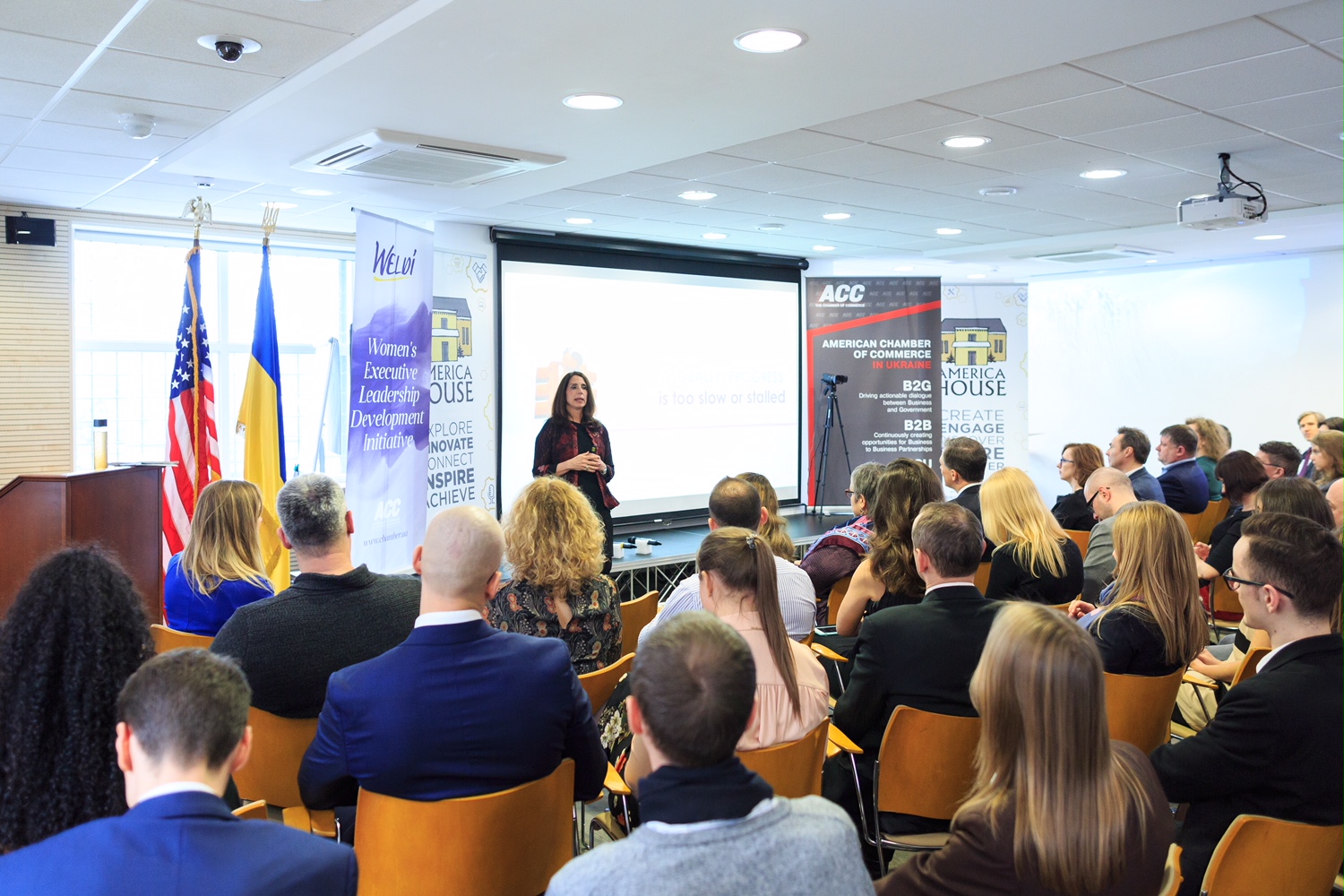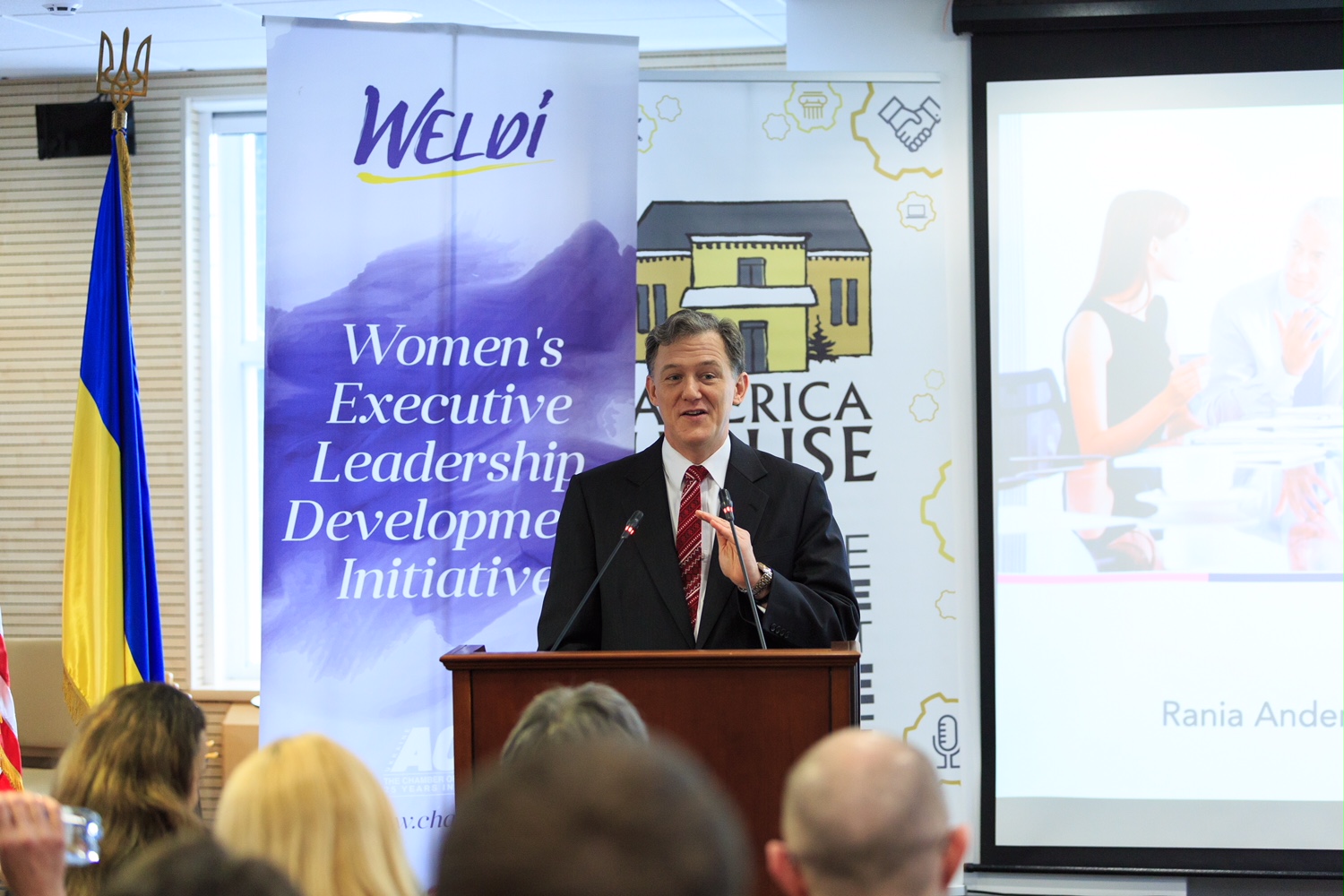Rania’s insights are now available for the Ukrainian public at YE and participating bookstores in her recently translated book, Undeterred: The Six Success Habits of Women in Emerging Economies.
Participation in this event showed the interest of business leaders in making their businesses more successful through the inclusion of more women’s leadership, especially in emerging economies like Ukraine. While bias, sexual misconduct and the gender pay gap have been on the agenda of global policy institutions for a long time but according to Rania, the opportunity for change now lies in the individual actions that leaders and colleagues can take. Rania says that the focus on “fix-the-women-programs” is insufficient.
That was the reference point from which the speaker started to provide the participants with a mix of useful recommendations, facts and personal experience. So why is the gender parity so critical for successful economic advancement? Researches show that a gender balance in the workplace holds enormous potential for the world’s GDP. In some places this profound social capital remains untapped.
The question is what should we start doing differently to reach these objectives? Rania is convinced that women don’t need “help”, only that their talents are underleveraged. Global goals begin on the personal level: from our families and homes. That was her message: we all are the agents of change. For example, instead of wishing your daughter to marry a rich man, why not encourage her to study better at school so she can achieve her own financial goals. We are restricting boys as well. Some of them, for example, aspire to become nurses or teachers and better fathers but rarely do so due to societal pressure. These attitudes obviously have been ingraining our cultures for centuries long but social norms do change which is demonstrated by Nordic countries through their school upbringing.
Curious detail: men commonly apply for a position when they meet at least 50% of qualifications required, while women do so only with 80% matching. Are they so timorous or indecisive? It could have to do with how we raise our children. Let’s trace it back to the playground: a boy who falls down would receive commonly “it’s ok, go on playing” while a girl is repeatedly told to be careful from the very beginning.
It is still a fact that women carry more responsibilities today when it comes to raising kids and housekeeping. But, American statistics show that full-time working women today actually spend more time with their children than stay-at-home moms did in the 1950s. In speaker’s opinion 3-year maternity leave is too long as it precludes women from keeping pace with the ever-evolving market and is unconscious deterrent to businesses hiring women. In general, we ought to pay less attention to office hours and instead concentrate on how much we produce.
Rania proposes that leaders should “be a sponsor of women in workplaces in addition to being mentors”. Mentoring means giving advice to someone while sponsoring is advocating for them publicly to be given opportunities to advance in their careers. According to Rania, women are over-mentored and under-sponsored. A lot of them are stuck working really hard in middle management but rarely advance to leadership roles that actually give them more decision making and flexibility.
An example of the type of question asked during the subsequent Q&A session was from a young Ukrainian entrepreneur who asked a question about how he can interest more women in applying for job openings at his company. The presentation and exchange resulted in a fruitful discussion and reflection on women in workforce. It is easy to believe that we operate in meritocracies, and that women have the same opportunities as men, but that is not always true. Let’s work together to get more women in the workforce and create more opportunities that benefit both men and women.
Photos provided by ACC.
Promoting Business by Advancing Women
Eighty business leaders, half of whom were men attended a business lunch on March 30, sponsored jointly by the American Chamber of Commerce and U.S. Embassy in Ukraine and America House, with a support of WELDI (Women’s Executive Leadership Development Initiative), at America House titled "Four Ways to Lead the Workforce of the Future" with Rania Anderson, the foremost expert on the career advancement of businesswomen in growth economies.







